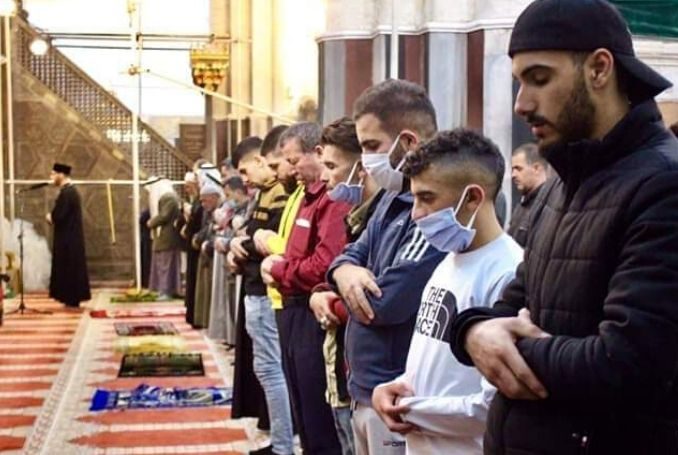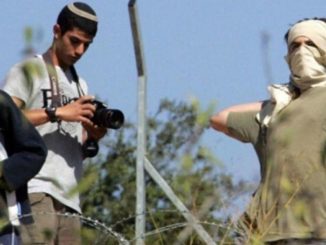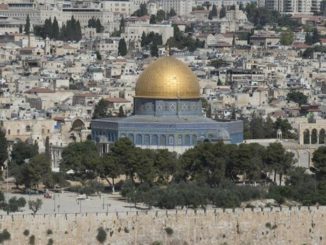
Israeli forces today prevented Muslim worshippers’ access to al-Ibrahimi mosque in the southern West Bank city of Hebron (Al-Khalil), according to the Palestinian news agency WAFA.
Palestinian Authority Prime Minister Mohammad Shtayyeh declared yesterday an end to the two-months long lockdown on the Palestinian territories, allowing a return to normal life including the opening of mosques and churches.
Watch| on the first day of Eid Al-Fitr, when the Palestinians are supposed to live in joy, Israeli occupation forces attack the worshipers in front of Al Ibrahimi mosque in Al- Khalil city this morning. #Palestine pic.twitter.com/wx30ntIcTs
— Huda Fadil ?? #Gaza (@HudaFadil2) May 24, 2020
Israeli forces closed all military checkpoints and electronic gates leading to the Ibrahimi Mosque and prevented residents from crossing to reach the mosque for prayer.
Israeli soldiers reportedly prevented worshipers gathering outside the mosque from praying in the outer courtyards, and allowed the entry of only 50 people.
The Mosque’s director, Hefthi Abu Sneineh, condemned these Israeli measures, which he stressed are an infringement on Islamic holy sanctities sponsored by international covenants that guaranteed the right to religious freedom.
Ibrahimi Mosque reopens doors to worshipers after a three-month lockdown #Palestine #CoronavirusPandemic #AlKhalil #NativityChurchhttps://t.co/RWpOudVQer pic.twitter.com/o8ZIrMHdaL
— ILKHA (@IlkhaAgency) May 26, 2020
The Ibrahimi Mosque, believed to be the burial place of the Prophet Abraham, is sacred to both Muslims and Jews and has been the site of oft-violent tensions for decades.
The Mosque is located in the Israeli-controlled section of Hebron, known as H2. It has been divided between Muslims and Jews following the massacre carried out on February 25, 1994, by Israeli-American settler Baruch Goldstein, who opened fire at a large number of Palestinian worshippers as they were performing the dawn prayers on a Ramadan day.
(Palestine Chronicle, WAFA, Social Media)







